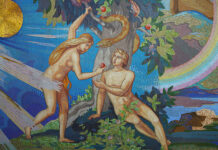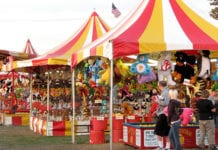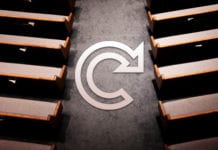The Surprise Symphony by Franz Joseph Haydn was playing softly in the kindergarten classroom as the students worked quietly in their various learning centers. The children loved waiting for the sudden loud chord that came in the slow movement.
A visitor of some prominence came by our school for an unexpected visit. The parent volunteer brought her by to observe in my classroom. This was a new school, and so one of my ‘hats to wear’ was to teach in the mornings.
The students all stood up with their best manners, and one child formally welcomed and introduced her to our classroom.
“What are you listening to?” she asked the children. “This is The Surprise Symphony,” responded one of the little cherubs. Smiling, I realized I could start breathing again.
“And who wrote this delightful piece of music?” she continued.
Another hand shot up, “Haydn…Hadyn…Seek!” he finally said after some hesitation. Oh, well, so much for showing off.
Developing Minds and Classical Music
While I am aware the “Mozart Effect” is now debunked by some, we still know that classical music is good for the brain, and there is much research to support the benefits of classical music and brain development.
This week is “Brain Awareness Week” and you may want to check out: www.dana.org/brainweek/
Let’s look at classical music, children, and brain development.
As a strong proponent of classical music, it has been an integral part of the curriculum in each school that I have started and served.
This includes taking the students to hear the Dallas Symphony Orchestra on a regular basis, teaching Orff and Kodaly, and having choirs and bands that include classical music in their repertoire.
Teachers who work for me are strongly encouraged to play classical music in their classrooms.
Giving the Gift of Good Music
So, of course, when our grandchildren came along, Paul and I said, “We want to be the music-and-book grandparents.” Kids have enough toys, but they can never get enough exposure to good music and books.
Of course, we may be a tad biased. Paul is in his 40th year with the DSO, and I am an author.
We want our grandchildren to hear quality music, and for us, that means classical. Don’t worry, I still sing all the ‘cute’ songs with them, but we want them exposed to classical music and the hymns of our faith.
Sometimes the grandchildren and I put on soft lights, make soap bubbles as we listen to Bach, and we love baking bread to Beethoven’s 5th. It is sweet to rock precious babies to Brahms’s Lullaby or Pachelbel’s Canon, also known as Canon in D major.
“I like Mars and Jupiter!”
Paul loves the structure of The Four Seasons by Antonio Vivaldi, and so we gave it to one of our grandsons, Timothy, for his 4th birthday. He loves listening to it almost daily – that is, when he isn’t rocking on his horse at full speed with The Planets by Gustav Holst blaring.
His daddy took him to the concert at the Dallas Symphony Orchestra when they performed The Planets. Timothy tells me, when we are in his pretend commander station, “I really love to listen to Mars and Jupiter. I can hear Grandpa’s French horn.”
“Another one!”
Inadvertently we discovered that grandson Keagan, age 3, is our little jazz man.
One day when he got into our car with his mommy, Paul had on a Diana Krall jazz CD.
Paul was busy talking with our daughter and didn’t pay attention to what music was playing. He went to turn off the music and Keagan quickly responded, “Another one!”
Paul turned it back on and looked into the rear view mirror. Keagan had his eyes closed with his head moving gently to the beat, really into it. Jazz became his music of choice.
What’s the Answer?
Hudson Jack is looking like a percussion boy at this point, but he is only eighteen months, so that is more a factor of child development than anything else at this point. He does love music, and we are excited to see which way he will go.
Granddaughter Hope is six months and all instruments go into her mouth.
Time will tell with each one, and we will just enjoy the journey.
We have pictures of each of the boys first checking out the bell on Grandpa’s horn when he plays. Each boy had a different response. Curious Hudson’s hand went right into the bell trying to figure it out.
Grandpa is teaching Timothy and Keagan to play the horn. They walk around ‘buzzing’ on their mouthpieces. Who knows? At this age, we just want to expose them to music and different opportunities.
Will all this exposure to classical music make children smarter? Who knows. But we do know it will facilitate brain development, train their ear to appreciate quality music, create order, and cultivate an appreciation for the arts.
“Let us describe the education of our men. What then is the education to be? Perhaps we could hardly find a better method than that which the experience of the past has already discovered, which consists, I believe, in gymnastics for the body and music for the mind.” –Plato








